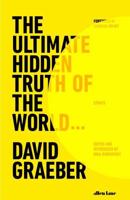Publisher's Synopsis
This book explores times, spaces and imaginings relating to international law through the lens of queer theory.
For some time now, queer theorists and legal scholars who think with queer theory have asked, what happens when queer theory moves out of its home base of gender and sexuality? The chapters in this book begin to answer this question by applying insights from queer theory to a diverse array of international law topics, from travaux préparatoires and international judging to the environment, oceans and outer space. While some contributions maintain a focus on gender and sexual diversity, all are characterised by a shift away from questions about LGBTIQA+ people towards wider discussions about power, normality, difference and liberation in international law. Through these engagements, the book demonstrates how queer theory can provide insights into a range of international law issues by allowing us to 'make strange' the taken-for-granted and contributing to a broader practice of reading for difference rather than dominance. The book engages with contemporary challenges in international law, from the climate crisis to new military technologies, such as automated naval vessels. It also showcases the diversity of approaches to queering international law that are emerging, with some authors drawing attention to the violence of (neo-)colonial international law and others engaging in more utopian and reparative thinking.
This collection of queer theoretical engagements with international law will be invaluable to scholars of international law and international relations with an interest in critical approaches to these areas; as well as to researchers, activists and practitioners working in cultural, gender, queer and/or postcolonial studies.











